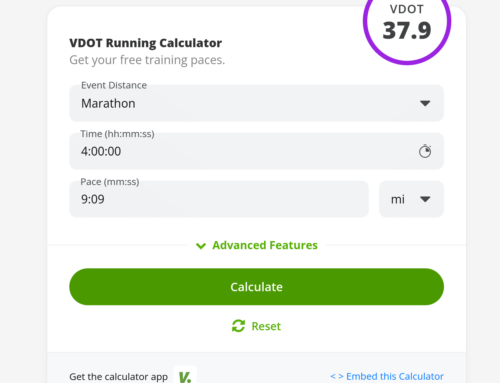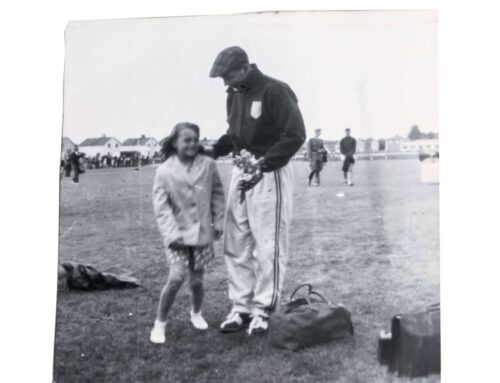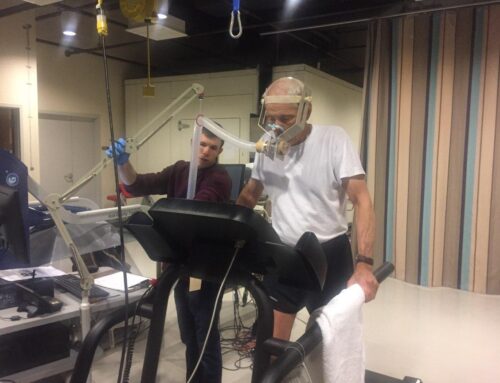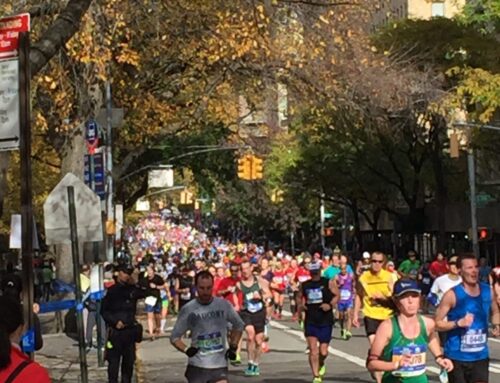“Staying on Task”
By Mike Smith
Fall 1998, I am a freshman, about two months into Division I collegiate running. It’s a whole new world and I’m getting a hard introduction. My team is one of the best in the country and I am trying my hardest to hang on in yet another brutal practice. A dark fall day, the older runners pull away again, leaving me behind in another interval session. What am I doing here? I feel like I am trying so hard but I just keep getting dropped. Every workout.
My college coach, Pat Henner, is 6’4” with a silent, blunt, intensity that scares the hell out of me. Two months in, I avoid the guy at all cost. Another workout over, with my hands on my knees I am trying to recover, but I see him walking towards me. I feel the death grip behind my neck, he leans in, his deep Tennessee accent right up to my ear. “You’re not concentrating,” he says with fury, then walks away (there were one or two other words in there too if you know what I mean) I’m not concentrating? How can he say that? I certainly feel like I am concentrating. I can’t run any faster. I can’t run one second faster. What does this mad man mean?
Our minds are just as important as our legs when it comes to running. Concentration, or as I say sometimes, “staying on task,” is something that many of us think we’re doing when we run, but often find out we’re not. By concentrating I mean fully focusing in the present, down to the very step, of what you’re doing when you’re running. We often start this way, but when the body becomes more uncomfortable, the mind goes to other places. What we want to improve is staying engaged the entire time we need to. This could be just thinking about the next lap in a track workout, or the next mile in a marathon. Thinking about this and nothing else.
This is something I recommend applying during hard sessions when you’re trying to get the most out of yourself. Is this deeply present approach necessary for every run? No. Certainly everyone needs those easy runs where they are day dreaming, or sorting out something “non running” in their head. We also need those runs where we just chat with companions about what’s on our mind without thinking about what we’re doing. All of these are OK (this actually makes up most of my running!). However, when it’s time to reach down deep, it’s important to be able to pause our thinking, to make the world around us pause, and simply run.
What happens when we don’t apply this focus? The most important thing I notice with the runners I coach is that form changes when fatigued, we often run less efficiently and waste more energy. When we’re tired we slip into our ugliest running styles and this usually is followed by slowing paces, even though the athlete feels like they can’t go any faster. Next, when running in discomfort, many of our mind wanderings can be negative thoughts: how much is left in a race, or how bad a workout is hurting, or even, being distracted by others around us. These are easy diversions, but it’s important to realize that they don’t help you. And when the body is physically at a maximum, we need the mind to help in any way we can.
The first step to perfecting this concentration is to be aware of what you think about when you run. In you next workout, observe your thoughts and distractions and make note of them. Next, practice returning to task when your mind wanders away from it. If a distraction or a doubt creeps in, create a mantra or images that work for you personally that keeps your mind in its right place. Olympian Kara Goucher’s word is “fighter”, this is what she repeats to regain her concentration and handle doubt in during a tough race. I have heard “flow” and “fast and relaxed” from athletes I coach. It even could be a reminder to check your form, or to control your breathing. It’s also helpful to make very small portions of running ahead of you to focus on, maybe just one turn around the track, or one section of a road or trail at a time.
Coach Henner observed my workouts that freshman season and knew that my mind was not staying focused on the steps directly in front of me during those workouts. He was right. Instead of staying tough, thinking of keeping my hips under me, shortening my stride, dropping my arms, looking ahead, and keeping my turnover strong, I was thinking “This hurts really bad and I can’t believe these guys are pulling away from me again!” Sure, maybe these things were true, but my mental attitude was not aiding my physical struggle in any way. As I said, the first time I was told I wasn’t keeping my mind on what I was doing, I thought it was crazy, little did I know that it was true, and mastering this would eventually become a great tool to my arsenal as a runner.
Play around with keeping your focus during the minutes and seconds that you run a workout or race and see the difference it makes in performance!





Leave A Comment